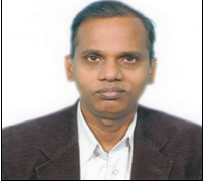This course explanations and expositions of stochastic processes concepts which they need for their experiments and research. It also covers theoretical concepts pertaining to handling various stochastic modeling. This course provides classification and properties of stochastic processes, discrete and continuous time Markov chains, simple Markovian queueing models, applications of CTMC, martingales, Brownian motion, renewal processes, branching processes, stationary and autoregressive processes.
INTENDED AUDIENCE: Under-graduate, Post-graduate and PhD students of mathematics, electrical engineering, computer engineering
PRE REQUISITES : A basic course on Probability
INDUSTRY SUPPORT: Goldman Sachs, FinMachenics, Deutsche Bank and other finance companies.

DOWNLOAD APP
FOLLOW US